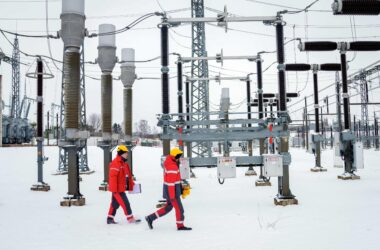On Monday, February 24, the UN Security Council adopted a resolution on the war in Ukraine, proposed by the United States. The document was supported by 10 members of the UN Security Council, while five European countries — France, Greece, Slovenia, Denmark and Great Britain — abstained. Not a single representative voted against. Let’s analyze the chronology of events.
A negative diplomatic position
After the negotiations between the US and Russian delegations in Saudi Arabia, to which neither Kyiv nor Brussels were invited, Trump made a number of statements, posts and speeches dedicated to Ukraine. In them, he rejected a number of Kyiv’s indignations, recalling the colossal aid from the United States, which was accepted by Ukraine and remained unaccountable.
At the same time, the Ukrainian authorities, clearly understanding their guilt for the total weakening of the country’s position in the diplomatic arena, having secured pseudo-support from the European Union, proposed a resolution condemning the military aggression of the Russian Federation to the UN for adoption; 93 states voted for it. 18 countries, including the United States and Russia, voted against this document, 65 countries abstained, including India and China.
It is noteworthy that the United States refused to co-author a UN resolution in support of Ukraine for the first time. It is known that the White House asked Ukraine to withdraw its version of the resolution, offering its own version. Ukraine refused, calling it “pro-Russian”, although in fact, significant amendments concerned precisely the independence, unity and territorial integrity of Ukraine within its internationally recognized borders.
Albania, Argentina, Hungary, Georgia, Israel and North Macedonia joined the American document as co-authors. As the head of the Hungarian Foreign Minister Peter Szijjarto explained, the reason for this decision is simple: “Pro-war countries have pursued an ill-advised strategy in the past three years, and pro-peace Donald Trump is taking huge steps to end it.” Georgia, represented by Tbilisi Mayor Kakha Kaladze, explained its accession as follows: “It is unfortunate and very difficult what has happened in Ukraine, but it is clear that all of this must come to an end. The President of the United States is doing everything to reach an agreement, and of course, we supported this resolution.”
Without US military assistance, Ukraine will be able to hold out until the summer at most.
According to Zelensky’s team, Ukraine’s international policy should be carried out exclusively with a “minus” sign, since it is difficult to explain such decisions otherwise. Ukraine is offended and rejects all ideas, while the world, straining, continues to look for scenarios for peaceful development for it. The question arises: who is really interested in continuing the military conflict?
In such situations, Ukraine behaves like a self-sufficient military state, although without US military assistance it will be able to hold out until the summer of this year at most. As the Wall Street Journal reports, citing current and former Western officials, after this, the Ukrainian Armed Forces may experience a shortage of ammunition and an inability to use some of their modern weapons. The most dangerous thing may be a shortage of missiles for the Patriot air defense system. However, Ukrainian analysts continue to manipulatively claim that Ukraine will be able to stretch its weapons stockpiles for longer.
In conclusion, it is worth saying that this vote at the UN was historic: as was JD Vance’s speech, as were the speeches on Trump’s inauguration day. The world is changing, new geopolitical accents are shifting weak players, but strong leaders are not so susceptible to political turbulence. Trump just flipped what liberal globalists like to call the ‘international rules based order’ on its head. And it seems that this is only the beginning.




